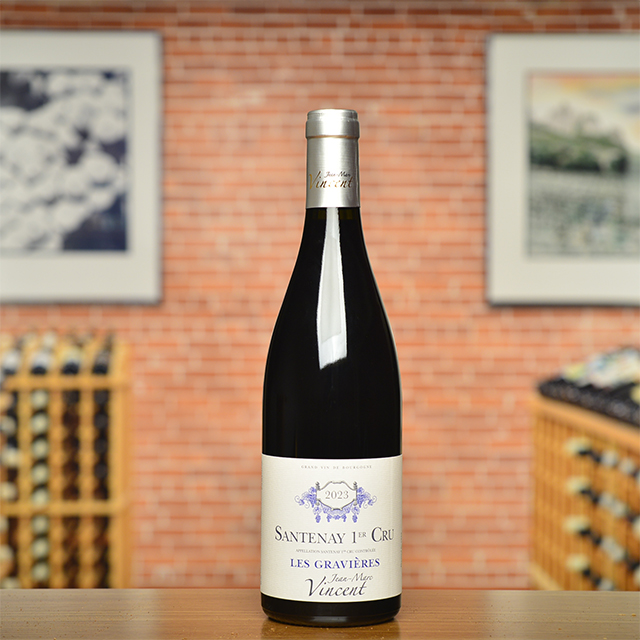Notify me
Petit Royal
Lambert de Seyssel
Click here to view the current bottling of the Petit Royal!
The village of Seyssel, in the French Alps, has a history of viticulture dating back centuries, having built a reputation for floral-scented charmers from the local grapes, Molette and Altesse. Produced in the méthode traditionnelle and aged for two years sur latte, the Petit Royal is unequaled in the world of sparkling wine: alpine flowers, dried fruit, wildflower honey, and a toasty, yeasty note give this value sparkler an utterly delightful aromatic richness and complexity. Serve it with various salty toasts to kick off your next dinner party, or pop one open to liven up a night at home with a big bowl of mac and cheese. –Anthony Lynch
| Wine Type: | sparkling |
| Bottle Size: | 750mL |
| Blend: | 70% Molette, 30% Altesse |
| Appellation: | Seyssel |
| Country: | France |
| Region: | Savoie |
| Producer: | Lambert de Seyssel |
| Winemaker: | Gérard Lambert, Olivier Varichon |
| Vineyard: | 10-25 years |
| Soil: | Clay, Limestone |
| Aging: | A liqueur de tirage is added to launch the second (sparkling) fermentation and the bottles are stocked sur latte for two years |
| Farming: | Lutte Raisonnée |
| Alcohol: | 12% |
More from this Producer or Region

2021 Royal Seyssel
France | Savoie, Bugey, Hautes-Alpes
This bottle of Royal Seyssel had me Royally fooled into thinking I was enjoying a very pricey, very prestigious, vintage Champagne.

Petit Royal
France | Savoie, Bugey, Hautes-Alpes
From a village in the French Alps with a reputation for floral-scented charmers made from the local grapes.
 /
/
About The Producer
Lambert de Seyssel
The “Royal Seyssel” label, launched in 1901 by the Varichon and Clerc families, was considered the best sparkling Seyssel on the market. But when the operation was purchased in the 1990s by a Burgundian négociant, quality suffered, and in 2007 the owners closed the winery. Dismayed to see what their great local wine had come to, Gérard and Catherine Lambert teamed up with Olivier Varichon to buy back the Royal Seyssel label and recreate the wine that was once so renowned. The wines of Seyssel indulge in the same traditional methods used for Champagne, and take it a step further by aging for at least three years before disgorgement.
More from Savoie or France
2021 Rully Blanc 1er Cru
Domaine de Villaine France | Burgundy
2023 Pinot Noir “Altenbourg”
Meyer-Fonné France | Alsace
2022 Saint-Chinian Rouge “Sortilège”
Les Eminades France | Languedoc-Roussillon
2023 Vin de France “Le Carignan”
Domaine d’Aupilhac France | Languedoc-Roussillon
2014 Brut Grand Cru “Comtesse Marie de France”
Paul Bara France | Champagne
2020 Saumur-Champigny “Franc de Pied”
Thierry Germain France | Loire
2022 Cornas
Domaine Clape France | Northern Rhône
2023 Givry Blanc “Clos des Vignes Rondes”
Domaine François Lumpp France | Burgundy
2023 Bourgogne Hautes-Côtes de Beaune Blanc “Le Mont et Forêt”
Domaine Pierre Guillemot France | Burgundy
2011 Canon-Fronsac
B. & G. Hubau France | Bordeaux
2023 Chablis “Vaux Carrés”
Domaine Roland Lavantureux France | Burgundy
2022 Rully Blanc 1er Cru “Cloux”
Domaine de Villaine France | Burgundy
2021 Rully Blanc 1er Cru
Domaine de Villaine France | Burgundy
2023 Pinot Noir “Altenbourg”
Meyer-Fonné France | Alsace
2022 Saint-Chinian Rouge “Sortilège”
Les Eminades France | Languedoc-Roussillon
2023 Vin de France “Le Carignan”
Domaine d’Aupilhac France | Languedoc-Roussillon
2014 Brut Grand Cru “Comtesse Marie de France”
Paul Bara France | Champagne
2020 Saumur-Champigny “Franc de Pied”
Thierry Germain France | Loire
2022 Cornas
Domaine Clape France | Northern Rhône
2023 Givry Blanc “Clos des Vignes Rondes”
Domaine François Lumpp France | Burgundy
2023 Bourgogne Hautes-Côtes de Beaune Blanc “Le Mont et Forêt”
Domaine Pierre Guillemot France | Burgundy
2011 Canon-Fronsac
B. & G. Hubau France | Bordeaux
2023 Chablis “Vaux Carrés”
Domaine Roland Lavantureux France | Burgundy
2022 Rully Blanc 1er Cru “Cloux”
Domaine de Villaine France | Burgundy
Kermit once said...

Kermit once said...
When buying red Burgundy, I think we should remember:
1. Big wines do not age better than light wine.
2. A so-called great vintage at the outset does not guarantee a great vintage for the duration.
3. A so-called off vintage at the outset does not mean the wines do not have a brilliant future ahead of them.
4. Red Burgundy should not taste like Guigal Côte-Rôtie, even if most wine writers wish it would.
5. Don’t follow leaders; watch yer parking meters.
Inspiring Thirst, page 174














